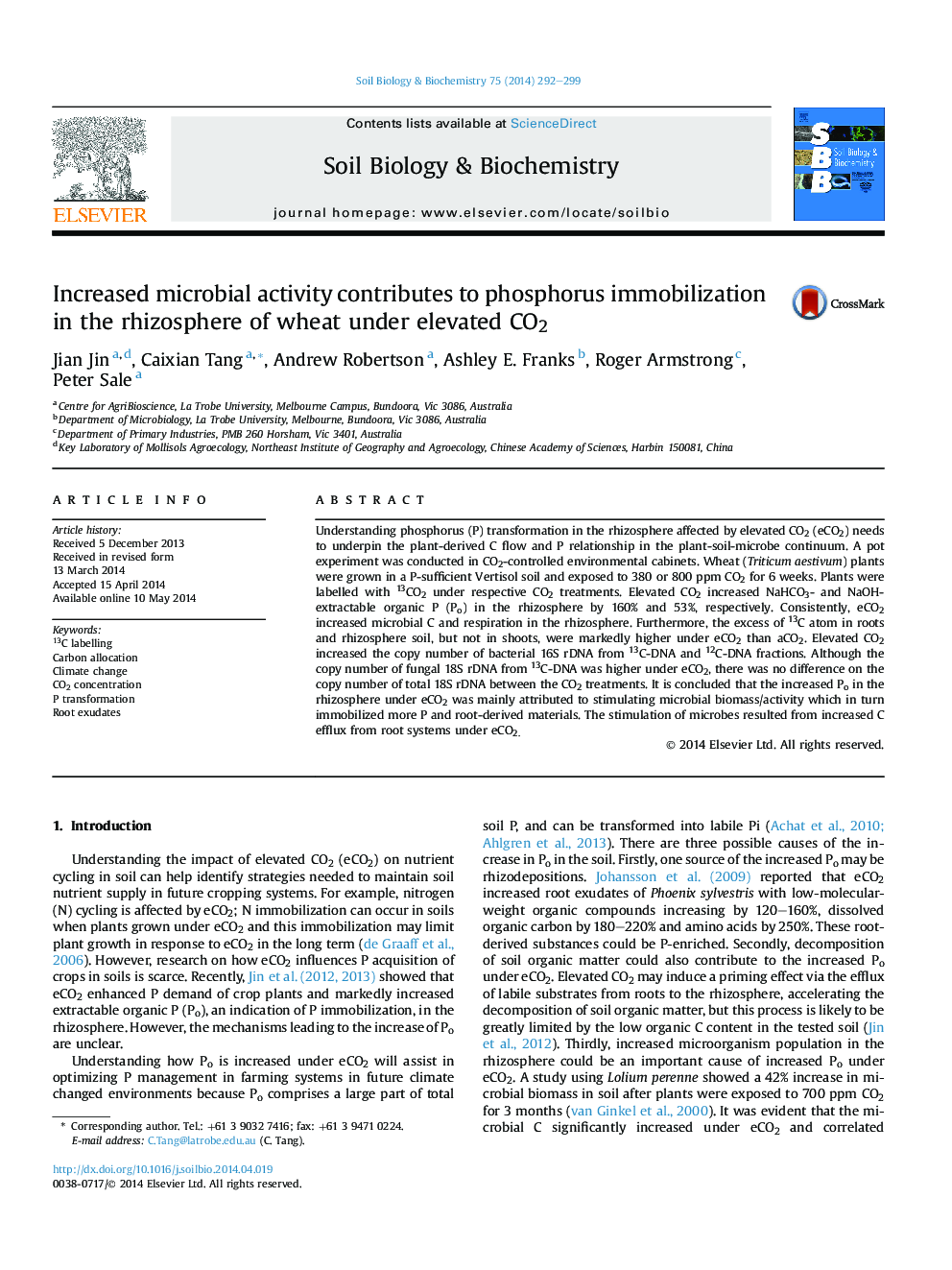| Article ID | Journal | Published Year | Pages | File Type |
|---|---|---|---|---|
| 8364769 | Soil Biology and Biochemistry | 2014 | 8 Pages |
Abstract
Understanding phosphorus (P) transformation in the rhizosphere affected by elevated CO2 (eCO2) needs to underpin the plant-derived C flow and P relationship in the plant-soil-microbe continuum. A pot experiment was conducted in CO2-controlled environmental cabinets. Wheat (Triticum aestivum) plants were grown in a P-sufficient Vertisol soil and exposed to 380 or 800Â ppm CO2 for 6 weeks. Plants were labelled with 13CO2 under respective CO2 treatments. Elevated CO2 increased NaHCO3- and NaOH-extractable organic P (Po) in the rhizosphere by 160% and 53%, respectively. Consistently, eCO2 increased microbial C and respiration in the rhizosphere. Furthermore, the excess of 13C atom in roots and rhizosphere soil, but not in shoots, were markedly higher under eCO2 than aCO2. Elevated CO2 increased the copy number of bacterial 16S rDNA from 13C-DNA and 12C-DNA fractions. Although the copy number of fungal 18S rDNA from 13C-DNA was higher under eCO2, there was no difference on the copy number of total 18S rDNA between the CO2 treatments. It is concluded that the increased Po in the rhizosphere under eCO2 was mainly attributed to stimulating microbial biomass/activity which in turn immobilized more P and root-derived materials. The stimulation of microbes resulted from increased C efflux from root systems under eCO2.
Related Topics
Life Sciences
Agricultural and Biological Sciences
Soil Science
Authors
Jian Jin, Caixian Tang, Andrew Robertson, Ashley E. Franks, Roger Armstrong, Peter Sale,
